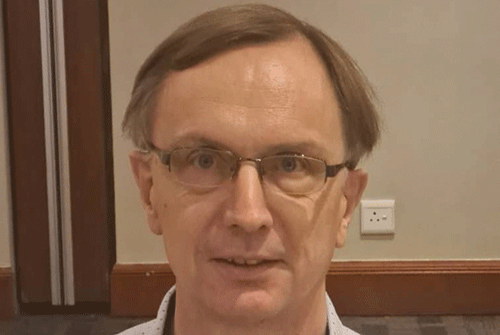Andreas Peltzer
If we look at the potential carriers of development in Namibia we have difficulties to see any:
Churches were influential before Independence but are absent in modern developments. They manage assets worth billions but are short of cash at any given moment. Their constitutions don’t qualify as foundations for bankable actions.
Ethnic authorities seem to face a similar predicament. The leadership cannot initiate substantial developments. Banks or investors are not permitted to partner partly formalised committees of elders.
Charitable institutions such as schools or hospitals may have a profound monthly cash flow but are bound by non-profit trust regulations.
Section-22 companies may be more flexible, yet: banks are hesitant to grant loans to them.
Co-operatives could overcome these challenges. Unfortunately, many of them were mismanaged in a short period of time. Therefore, they are out of fashion.
We conclude: There isn’t much hope in terms of the management of social development in Namibia. Be that as it may, it is only one aspect of the issue to be discussed here.
Let us look back at Independence: The new government continued with the institutions it inherited. The term ‘dual economy’ meant a private business world plus ministries and parastatals for all the other tasks.
This is neither the concept of Christian social thinking nor (ruling party) socialism. On the Christian side, we refer to the concepts of Friedrich Wilhelm Raiffeisen or Victor Aimee Huber (19th century).
The idea was not to prepare the lower classes for capitalism. Instead, they had a distinct socio-ontological concept of the human person. Socialists in contrast rely more on psycho-analytical concepts but arrive at similar phenomenological insights.
Dualisms such as creditor and debtor, capitalism and communism, economic and social politics, individual and society are not the first point of departure when thinking about mankind.
In 1862 Friedrich Wilhelm Raiffeisen, a Lutheran teacher and local politician, founded the first co-operative bank. He insisted people who borrow money are not beggars but co-owners of the bank. Anyone who took a loan became a shareholder.
At the same time judge and politician Hermann Schulze-Delitzsch established savings-and-consumption co-operatives. Together the members were responsible and liable for a cooperative whatever its specific purpose. Unsuccessful were only the productive co-operatives. In Namibia, these are the most challenging as well. Very few are still up and running.
Back to the socio-ontological foundations we have to note a different take on communal as well as national politics.
The local community as a space of human development is one as is the national spatial economy.
The value of this space characterised as a democratic cooperative is enhanced by many different activities, centres of care, institutions and properties.
Freedom of movement, the core idea of liberalism, is valued highly but not overrated.
Debtors of cash loan businesses may forfeit the debt to a national loan cooperative (and become a member of it).
Town councils may accept debt as part of an integrated development plan where debtors become (re)liable members.
Referring back to the socio-philosophical foundations of humanity doesn’t mean bloated government services.
But unifying the communal space could entail communal obligations for churches and ethnic authorities as well as sports clubs and others.
With the homo cooperatives taking centre stage, a community may be assisted by businesses but may have to assist businesses another time. Together they may compete economically with another community which they may assist on another occasion.
Some agnostics tell people the world is a fierce battle, a ‘survival of the fittest’.
Darwin never said this. To the contrary, many quotes hint in the opposite direction.
There is no need to describe the Namibian society in a similar term.
What is required is as much cooperation as possible among all who are one in their communities, towns, regions up to the national level.
Together debt can become a credit.
*Andreas Peltzer is a Catholic theologian based in Okahandja.


